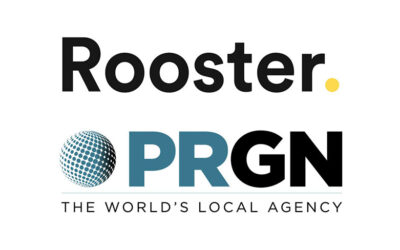In the Middle East, the business landscape is profoundly shaped by a unique blend of long-term vision and rapid technological advancement. As countries like the United Arab Emirates (UAE) and Saudi Arabia celebrate decades of stability under dynastic governance, they stand as exemplars of how consistent leadership can drive ambitious national strategies and economic transformations.
This consistency is a cornerstone of the region’s approach to development and innovation, particularly visible in initiatives like UAE Vision 2021 and Saudi Vision 2030. These long-term plans are not merely aspirational but are detailed roadmaps that guide the nations’ progress in diverse sectors, from infrastructure to technology and sustainability. The stability afforded by such governance allows these countries to plan decades ahead, enabling sustained growth and investment in future-oriented projects without the disruptions commonly seen in nations with frequent political upheavals.
One of the most significant areas of focus for the Middle East has been sustainability. This is not a new trend in the region but a well-entrenched policy direction.
The Middle East has been quietly leading substantial investments in sustainable cities and technologies long before global attention shifted to environmental concerns.
The push towards sustainability is deeply integrated into the national visions of both the UAE and Saudi Arabia, reflecting a commitment to transition from oil-reliant economies to diversified, sustainable ones.
The rapid development and adoption of Artificial Intelligence (AI) in the region highlight another critical aspect of its business landscape. AI in the Middle East is moving beyond the buzzword stage into a strategic tool embedded within the fabric of business operations. This technological embrace is not isolated to tech firms but spans across various sectors, enhancing everything from public relations strategies to crisis management and customer engagement.
For instance, AI’s role in public relations has evolved from broad, scattergun approaches to highly targeted, data-driven strategies. This allows businesses to tailor their communications to very specific audience segments within the diverse cultural mosaic of the Middle East. The development of AI tools that recognize and adapt to different Arabic dialects is a testament to the region’s commitment to hyper-personalization in business strategies.
Moreover, the sophisticated use of AI extends to crisis management, where speed and accuracy in communication are crucial. The Middle East’s PR teams are increasingly relying on AI tools to monitor social sentiments and track potential issues in real time. This capability is vital in a region where social and media narratives can shift rapidly, and effective crisis communication can mean the difference between a minor hiccup and a full-blown reputational disaster.
Social media also plays a pivotal role in the Middle Eastern business environment. The region’s approach to social media marketing is nuanced and highly localized, reflecting the linguistic and cultural diversity of its markets. Businesses often maintain multiple social media accounts across various platforms to cater to different national and linguistic audiences, ensuring that their messaging resonates appropriately with each subgroup.
Ethics and transparency have become increasingly important in the region’s business practices. In an era marked by growing consumer skepticism, Middle Eastern businesses are prioritizing honest, accountable communications. This trend towards ethical business practices is not just about adhering to regulatory norms but also about building trust with a savvy, information-rich consumer base.
As the Middle East continues to navigate its unique path of stable governance coupled with rapid technological growth, businesses in the region are well-positioned to leverage these dynamics for sustained success. The intertwining of long-term national visions with cutting-edge innovations offers a robust framework for navigating the complexities of modern business, making the Middle East a compelling study in contrast and ambition on the global stage.
For more insights, listen to this week’s episode of PRGN Presents.
If you enjoyed this episode, follow the “PRGN Presents” podcast on Apple Podcasts, Spotify, Google Podcasts or any other podcast app. We publish new episodes every other Thursday. To receive them automatically and for free, simply choose your preferred podcast player from this list, open the app and click the “Follow” or “Subscribe” button for the show: https://prgnpodcast.com/listen



